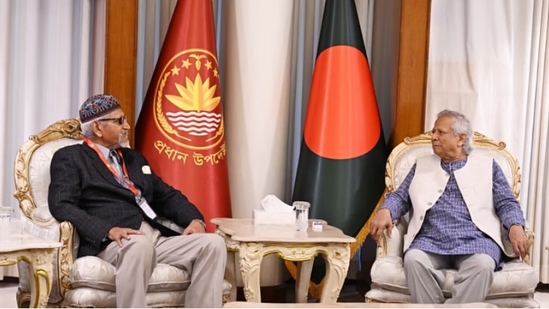The United States’ recent decision to suspend foreign aid to Bangladesh has sent shockwaves through the South Asian nation, triggering significant economic concerns and job losses. With thousands of workers affected and the political landscape shifting under the weight of these developments, many are left wondering: what does this mean for Bangladesh’s future, and how will the government respond to the mounting crisis?
A Sudden Shift in U.S. Policy
The Biden administration’s review of foreign assistance, initiated by former President Donald Trump’s policies, has led to the suspension of critical aid programs in Bangladesh. Washington’s decision, part of a broader 90-day reassessment of U.S. foreign aid commitments, has put the spotlight on the Yunus-led interim government, raising concerns about the country’s economic stability.
The freeze affects numerous U.S.-funded projects, ranging from social welfare initiatives to governance reforms. The U.S. Agency for International Development (USAID), which has played a pivotal role in Bangladesh’s development over the years, has been forced to halt funding for various programs, impacting thousands of workers and key infrastructure projects.
Thousands Face Job Losses
One of the immediate consequences of the aid suspension is the massive wave of job losses across various sectors. The International Centre for Diarrhoeal Disease Research, Bangladesh (icddr,b), which relies heavily on U.S. funding, has already announced plans to lay off over 10,000 employees. Other organizations that depend on American aid are also bracing for cutbacks, with potential job losses running into the tens of thousands.
“We were informed just days ago that our funding was no longer secure,” said an employee at a USAID-backed healthcare program. “Now, we don’t know if we will have jobs next month.”
For many workers, the sudden job insecurity is alarming, especially given the economic challenges already facing the country. The garment industry, one of Bangladesh’s largest employers, is also feeling the heat, as foreign investment confidence wavers amid growing economic uncertainty.
Switzerland’s Exit Adds to the Pressure
As if the U.S. aid suspension wasn’t enough, Switzerland has announced that it will phase out its bilateral development programs in Bangladesh by 2028 due to budget constraints. This decision compounds the economic strain on Bangladesh, which has long relied on international partnerships to support its development.
With two major international donors withdrawing support, questions arise about how Bangladesh will fill the gap left by reduced foreign aid. Some experts suggest that the government must turn to alternative sources, such as strengthening trade partnerships with China and the European Union, to stabilize its economy.
Political and Economic Implications
The aid suspension has fueled criticism against the interim government, with opposition parties accusing it of mismanaging international relations. The Yunus administration, however, has downplayed the crisis, arguing that U.S. aid comprises only a small fraction of the country’s total development budget.
Despite these assurances, the loss of foreign aid is likely to have long-term repercussions. Without U.S. funding, key social programs, including healthcare, education, and women’s empowerment initiatives, may struggle to continue. Moreover, the economic uncertainty could deter foreign investors, further straining Bangladesh’s already fragile economy.
Is This a Warning Sign for Other Nations?
The U.S. decision to reassess its foreign aid strategy is not limited to Bangladesh. Several other nations that have traditionally received American assistance are also facing similar reviews. This shift in policy reflects Washington’s growing emphasis on aligning foreign aid with broader strategic interests.
For developing nations, this raises an urgent question: how can they reduce dependency on foreign assistance and build more self-sustaining economies? Bangladesh’s current crisis may serve as a case study for other countries that heavily rely on external funding.
What’s Next for Bangladesh?
The coming months will be crucial for Bangladesh as it navigates this economic storm. The government will need to explore alternative funding sources, negotiate with international partners, and implement policies to support affected workers.
In the meantime, thousands of Bangladeshis remain in limbo, unsure of their financial future. Whether the country can weather this storm and emerge stronger remains to be seen, but one thing is certain: the economic and political landscape of Bangladesh has been irrevocably altered by this decision.
Also Read-
1. United Airlines Flight 1382 Catches Fire During Takeoff in Houston: 104 Passengers Escape Disaster
2. Deadly Clashes in Balochistan: 41 Killed in 24 Hours – What Does This Mean for Pakistan’s Security?
3. Union Budget 2025: No Income Tax Up to ₹12 Lakh – What Does It Mean for Taxpayers?




















One thought on “Anti-India Bangladesh Faces Heat as One Decision by Trump Shakes Yunus Government, 50,000 Lose Jobs Due to Aid Suspension”